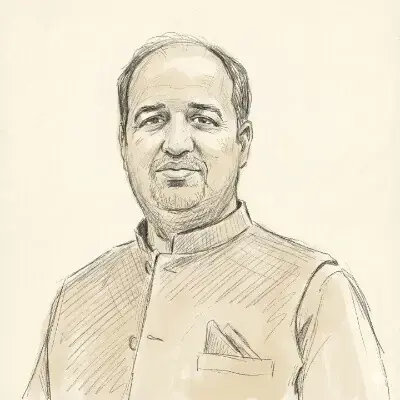ISLAMABAD: Around 1.8 million children, nearly a tenth of all enrolled students in Pakistan, study in religious seminaries, according to a report launched by the Ministry of Federal Education and Professional Training on Tuesday.
The Pakistan Education Statistics 2013-14 report also reveals that there has been no significant change in enrolment at the primary school-level and the number of students enrolled in primary schools is almost at the same level as it was in 2011-12.
According to the report, there are 145,491 primary schools (both private and public), where approximately 17 million students are enrolled. In contrast, nearly 1.84 million students are enrolled in the 14,405 registered madressahs, of which 97 per cent are privately managed and only 393 are run by the public sector.
Pakistan Education Statistics 2013-14 paints bleak picture of pupil-teacher ratios in Islamabad, KP
However, Maulana Hanif Jalandhri, who is the general secretary of the Ittehad-i-Tanzeemat-i-Madaris-i-Deenia – the umbrella organisation that looks after the affairs of seminaries – said that a vast majority of private madressahs were registered with the concerned government departments.
The statistics report was compiled by the Academy of Educational Planning and Management (AEPAM), National Education Management Information System (Nemis) and education campaigners Alif Ailaan.
While highlighting issues with school education in the country, the report says: “On the education development index, which combines all educational access measures, Pakistan lies at the bottom with Bangladesh in the region, and is considerably below Sri Lanka,” the report said.
Over the past four years, enrolment at primary schools did not see any significant improvement. There were 17,567,581 students in primary schools in 2011-12, which increased slightly to 17,574,849 in 2012-13. In 2013-14, there were 17,869,859 students in primary schools.
In the same period, the enrolment in high schools declined slightly, with 2,691,595 students enrolled in 2011-12; 2,835,326 in 2012-13 and 2,318,840 students in high schools in 2013-14.
Pupil-Teacher ratio
The Pupil-Teacher ratio is one of the most common indicators used in educational planning.
“A low number of pupils per teacher indicates pupils will have a better chance of contact with the teacher and hence a better-learning process.”
But the report shows that the ratio in primary schools of Punjab is 33 pupils/1 teacher, while it is 29/1 in Sindh, 43/1 in KPK, 32/1 in Balochistan and 28/1 in Islamabad. However, in middle and high school, Islamabad has the poorest pupil-teacher ratios with 40/1 and 39/1 respectively.
Dr Baela Raza Jamil, an educationist and academic, told Dawn that neither the provinces nor the federal capital had made any progress with regards to increasing enrolment at the primary level.
“Poor quality of education, missing facilities, a high pupil-teacher ratio are some the main reasons for low enrolment at the primary level,” she said, adding that even today, there were a large number of schools that were being run without electricity, potable water and toilets.
The report also highlighted that around 35 per cent schools in the country, which don’t have clean drinking facility, 31 schools don’t have toilets and 41 per cent schools don’t have electricity.
Earlier, speaking at the launch of the report, Education Minister Baleeghur Rehman assured the audience that: “We will soon be able to allocate four per cent of our GDP to education, provided that our tax-to-GDP ratio increases.”
Published in Dawn, April 22nd, 2015
On a mobile phone? Get the Dawn Mobile App: Apple Store | Google Play



































